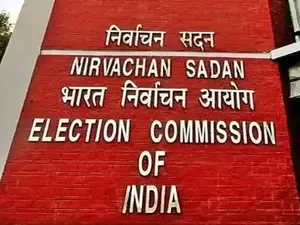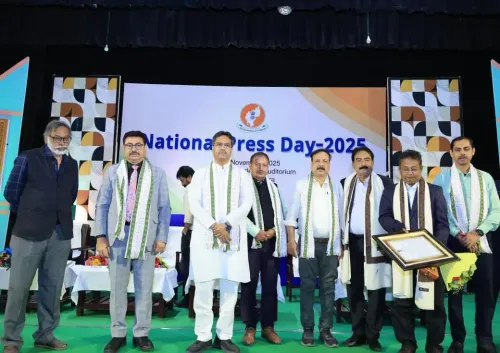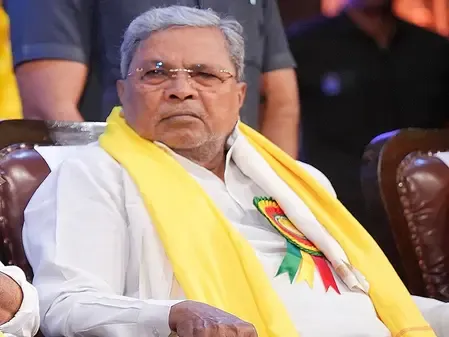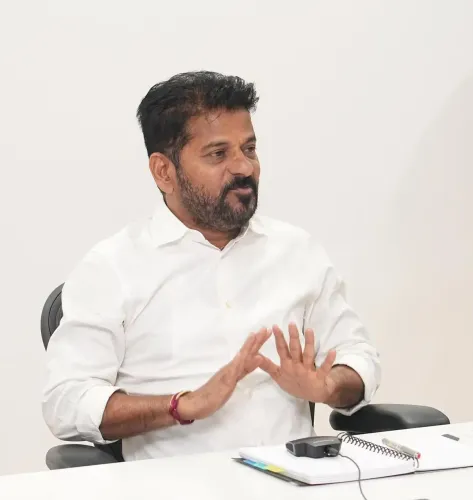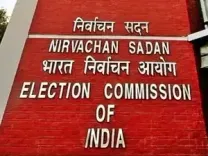What Actions Did J&K Police Take Against Hurriyat and Jamaat-linked Individuals?
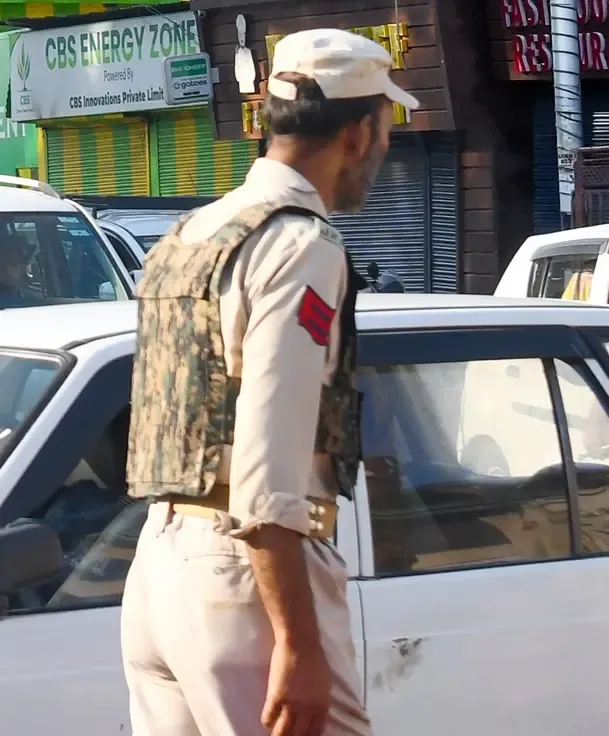
Synopsis
Key Takeaways
- The J&K Police are intensifying efforts to combat separatist activities.
- The office of the Tehreek-e-Hurriyat has been sealed under UAPA.
- Searches were conducted with proper legal backing.
- Incriminating materials were recovered during the operation.
- Ongoing police actions are aimed at dismantling separatist support networks.
Srinagar, Oct 1 (NationPress) On Wednesday, the J&K Police attached and sealed the office of the banned Tehreek-e-Hurriyat (TeH) located in Budgam. Additionally, they conducted searches at the residences of two individuals connected to the proscribed Jamaat-e-Islami in the Sopore region.
According to police reports, the head office of the TeH situated at Rehmatabad, Hyderpora, in Budgam district was attached. "This action, undertaken under Section 25 of the Unlawful Activities (Prevention) Act, 1967 (UAPA), demonstrates an ongoing crackdown on organizations suspected of engaging in subversive activities in Jammu and Kashmir. The late separatist leader Syed Ali Geelani utilized this office, which served as a focal point for separatist political activities," stated the police.
In a separate operation, Sopore Police executed searches at the homes of two individuals associated with Jamaat-e-Islami (JeI) in the Zaloora area of Sopore, aligning with their sustained efforts against separatist and militant networks.
The searches were performed following the acquisition of valid search warrants under the UAPA from a competent court, as reported by the police.
"Residences belonging to Muhammad Maqbool Bhat, son of Abdul Rahim Bhat, and Tanveer Ahmad Dar, son of Abdul Jabbar Dar, both from Zaloora Sopore, were meticulously searched in the presence of local Magistrates and independent witnesses. This operation was conducted with strict adherence to legal protocols and transparency. The searches resulted in the recovery of incriminating materials believed to be connected with the banned Jamaat-e-Islami," officials remarked.
The confiscated materials have been secured and will undergo further examination as part of the investigation, added the officials.
Although authorities withheld specific details due to the sensitive nature of the inquiry, they indicated that the materials could be crucial in tracing networks involved in separatist and unlawful activities.
"These raids were not arbitrary; they are part of a comprehensive investigative process linked to ongoing cases filed under UAPA. The initiative aims to identify and dismantle support structures that bolster separatist ideologies or provide logistical assistance to banned entities," stated police.

